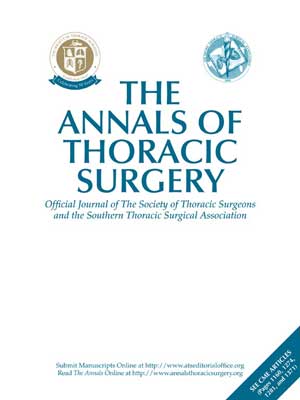New Study: Heart Surgery Not Linked to Memory Decline
By Adam Pick on January 17, 2019
Over the years, we’ve had several discussions about cognitive issues following heart surgery. Several patients in our community have complained of “pumphead”. Patients often describe pumphead as forgetfulness and/or memory loss that is potentially attributable to heart-lung machine use during open-heart procedures. At the same time, many patients in our community have not noticed any changes in mental capabilities following heart surgery.

For this reason, I continue to search for more information about post-operative brain function so that we can all learn more. That said, I just came across a new study that was recently published in the The Annals of Thoracic Surgery.
This fascinating study found that patients who undergo heart surgery do not experience significant memory changes—either better or worse—when compared with those who have a much less invasive, catheter-based procedure. So you know, a catheter procedure is typically a diagnostic test performed prior to heart surgery. Transcatheter aortic valve replacement (TAVR) also leverages catheters. It’s important to note that catheter procedures do not require the use of the heart-lung machine.

“It was comforting to see that the differences in cognitive decline between the two heart procedures are small, even though one involves major surgery and the other—cardiac catheterization—is a minimally invasive procedure,” said Elizabeth Whitlock, MD, from the University of California, San Francisco.
In this research, Dr. Whitlock examined data from the Health and Retirement Study (HRS) which included 3,105 participants who underwent heart surgery or cardiac catheterization between 2000 and 2014. The HRS is an anonymous study of older adults in the United States. Patients answer questions about their health and take brief memory tests every 2 years.

“We expected to find a bigger difference in the surgery group, since there are many anecdotes about serious cognitive decline after heart surgery,” said Dr. Whitlock. “Our results are different for several reasons, one being that our follow-up is up to 2 years after surgery, to account for the fact that people may improve over time.”
In the report, I came across a new acronym that I had not seen before. There was an acknowledgment to post-operative cognitive decline (POCD), especially among older patients.
The study suggested, “While it is not known for certain what causes POCD, researchers explained that factors such as small strokes that happen during surgery, the impact of inflammation from tissue trauma, and pain medications may have a role.”
“Most of these factors are temporary, so while they may explain an initial cognitive decline seen in the weeks after a major surgery, cognition should gradually improve as the contributors resolve,” said Dr. Whitlock. “That’s why this approach—looking at up to 2 years after surgery—is a very important way to look at the ‘old problem’ of POCD.”
I hope this helped you learn more about memory decline and heart surgery. I know this can be a very scary topic for patients. That said, here are additional, educational resources you might like to review.
- Surgeon Q&A: What Should Patients Know?
- Heart-Lung Machine: 5 Important Facts for Patients
- The Patient Mind Before & After Heart Surgery
Keep on tickin!
Adam
|
Spastic Lab Rat says on January 17th, 2019 at 3:33 pm |
|
Now I’m ticked, Adam. I’ve been blaming everything on my surgery, and now you’ve taken the linchpin out of my argument. My wife is going to have a field day with this! |
 |
|
Stephen Williston says on January 18th, 2019 at 2:38 am |
|
This makes sense. Personally I have never experienced any memory loss or other “pump-head” symptoms. However, I do feel more sensitive when it comes to extreme temperatures…perhaps the meds I’m on? |
 |













